Related Research Articles

Marcello Vincenzo Domenico Mastroianni was an Italian film actor, regarded as one of his country's most iconic male performers of the 20th century. He played leading roles for many of Italy's top directors in a career spanning 147 films between 1939 and 1997, and garnered many international honors including 2 BAFTA Awards, 2 Best Actor awards at the Venice and Cannes film festivals, 2 Golden Globes, and 3 Academy Award nominations.
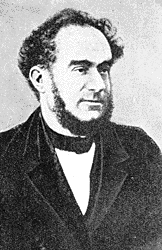
Carlo Matteucci was an Italian physicist and neurophysiologist who was a pioneer in the study of bioelectricity.
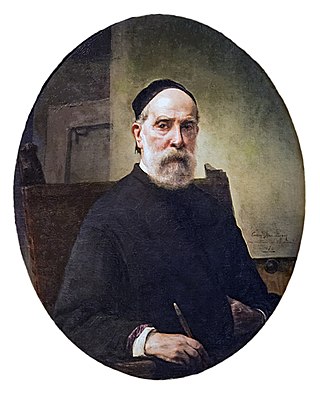
Francesco Hayez was an Italian painter. He is considered one of the leading artists of Romanticism in mid-19th-century Milan, and is renowned for his grand historical paintings, political allegories, and portraits.

Eduardo De Filippo, also known simply as Eduardo, was an Italian actor, director, screenwriter and playwright, best known for his Neapolitan works Filumena Marturano and Napoli Milionaria. Considered one of the most important Italian artists of the 20th century, De Filippo was the author of many theatrical dramas staged and directed by himself first and later awarded and played outside Italy. For his artistic merits and contributions to Italian culture, he was named senatore a vita by the President of the Italian Republic Sandro Pertini.
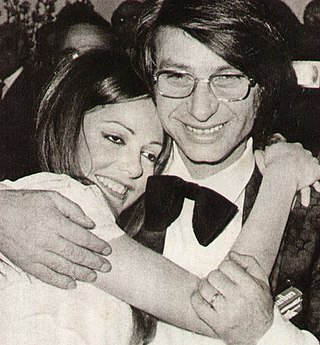
Nicola Di Bari is an Italian singer-songwriter and actor. He is considered one of the "sacred monsters" of Italian pop music.
Canzone napoletana, sometimes referred to as Neapolitan song, is a generic term for a traditional form of music sung in the Neapolitan language, ordinarily for the male voice singing solo, although well represented by female soloists as well, and expressed in familiar genres such as the love song and serenade. Many of the songs are about the nostalgic longing for Naples as it once was. The genre consists of a large body of composed popular music—such songs as "’O sole mio"; "Torna a Surriento"; "Funiculì, Funiculà"; "Santa Lucia" and others.

Peppino di Capri is an Italian popular music singer, songwriter and pianist, successful in Italy and Europe. His international hits include "St. Tropez Twist", "Daniela", "Torna piccina", "Roberta", "Melancolie", "Freva", "L'ultimo romantico", "Un grande amore e niente più", "Non lo faccio più", "Nun è peccato", and "Champagne".
Umberto Bindi was an Italian singer-songwriter. He is especially known for the popular song he co-wrote with Gino Paoli, Il Mio Mondo, which he recorded in Italian in 1963, and ''La musica è finita'' It was later performed by singers in English and other languages.
Spagnola is an Italian surname, meaning literally "Spanish", from and/or of "Spain" and may refer to:

Vincent Malo or Vincent Malo I was a Flemish painter who after training and working in Antwerp was mainly active in Italy, where he was known, amongst others, as Vincenzo Malo, Vincenzo Malò and Vincenzio Malo. Vincent Malo painted genre scenes as well as religious and mythological subjects and, occasionally, portraits.
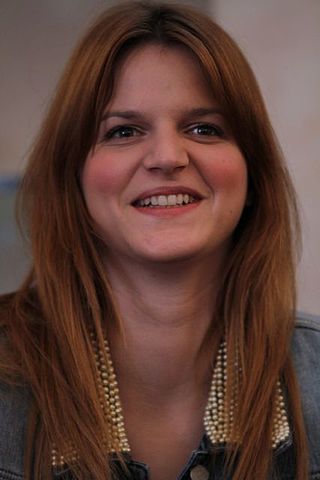
Chiara Galiazzo is an Italian singer. She rose to fame in 2012, after winning the sixth season of the Italian talent show X Factor. Her debut single, titled "Due respiri" and co-written by Eros Ramazzotti, was released on 8 December 2012 and debuted atop the Italian Singles Chart. Chiara released her first studio album, Un posto nel mondo, which debuted at number 2 on the Italian Albums Chart, and spawned the singles "Il futuro che sarà", "Mille passi" and "Vieni con me". In November of the same year, Galiazzo featured on Mika's single "Stardust", which became a number-one hit in Italy.
"Due respiri" is a song written by Eros Ramazzotti, Luca Chiaravalli and Saverio Grandi and recorded by Italian singer Chiara Galiazzo. The song was released as Chiara's debut single on 8 December 2012, immediately after she won the sixth series of talent show X Factor.
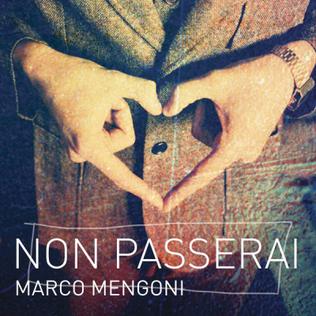
"Non passerai" is a song written by Tobias Gad, E. Kidd Bogart, Lee DeWyze and Andrea Regazzetti, recorded in 2013 by Italian singer Marco Mengoni. After being released as a digital download on 26 February 2013, as part of a promotional campaign preceding Mengoni's second full-length studio album #prontoacorrere, the song was confirmed as the set's third official single and released to Italian radio stations on 26 August 2013.
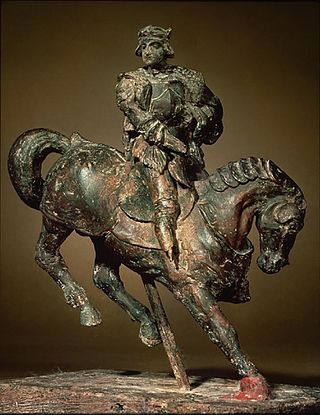
Horse and Rider is a beeswax sculpture depicting a rider on a horse. The history of the sculpture is unknown before the 20th century. The work has been attributed to Leonardo da Vinci by the Italian art historian Carlo Pedretti, though most historians have ignored or denied the attribution. A number of casts have been made, using a mold taken from the wax original.

Vincenzo Cantiello is an Italian singer who represented Italy at the 12th annual Junior Eurovision Song Contest in Malta with his song "Tu primo grande amore" and won.
Vincenzo Galli was an Italian opera singer and impresario. Considered an outstanding basso buffo singer, he created many roles on Italian stages, including in two of Donizetti's operas: Ivano in Otto mesi in due ore and Cesare Salzapariglia in Le convenienze ed inconvenienze teatrali. Luigi Ricci composed the role of Michelotto in his opera Chiara di Rosembergh specifically for Galli's voice.

Belli di papà is a 2015 Italian comedy film co-written and directed by Guido Chiesa and starring Diego Abatantuono. It is a loose remake of the Mexican comedy film The Noble Family.

Aristodemo Giorgini was an Italian opera singer who sang leading lyric tenor roles on the stages of Europe and North America during his 25-year career. He made numerous recordings in the early 20th century and was described by Gramophone Magazine as possessing "a sweet, steady, well-placed voice and a style distinguished by the purity of its legato." After his retirement from the stage in 1930, he taught singing in Naples, the city of his birth.

Fausto Guerzoni (1904–1967) was an Italian film actor. A character actor, he appeared in Italian films in supporting roles from the mid-1930s.
References
- ↑ Felice Liperi - Storia della canzone italiana 1999 - Page 77 "L'elenco dei musicisti non sarebbe completo se non si estendesse anche ai nomi di Giuseppe Capolongo (1877-1926), autore di Suonno 'e fantasia, 'O core 'e Catarina, Compagno, e Vincenzo Di Chiara (1860-1937), fabbro e venditore di ..."
- ↑ The Record Collector: A Magazine for Collectors of Recorded Vocal Art 2003 -... song of this title that has been traced is a 1905 composition with words by Antonio Barbieri and music by Vincenzo di Chiara. ... according to Kutsch & Riemens, he was born in 1860 and made his d6but, as Ernesto in Don Pasquale, in 1881."